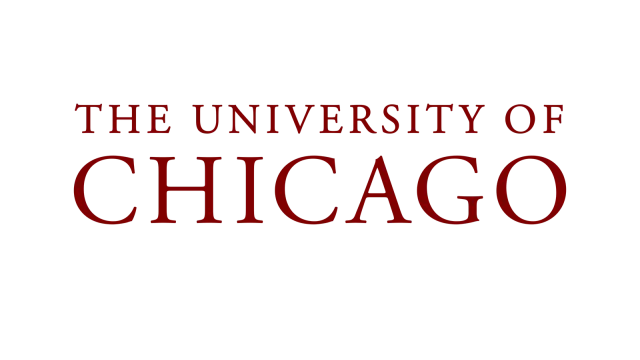Table of Contents
When shouting silences speaking: Disinvitations, shoutdowns, and civil disobedience

Shutterstock.com
Graduation time used to be known as “disinvitation season” around FIRE’s offices, as we prepared for the yearly increase in demands by faculty members and students to revoke the invitations of guest speakers — often commencement and keynote speakers — because of something the speaker did, said, or believes.
But in recent years, there’s been a dramatic increase in calls for disinvitations all year round, along with an increase in the use of violence, shoutdowns, and other disruptive tactics to silence speakers on college campuses. In some cases, students and faculty express opposition to invited speakers with petitions, open letters, non-disruptive protests, walk-outs, and other lawful, protected expression. But in other cases, students silenced campus speakers with whom they disagreed — including Ann Coulter and Judge Kyle Duncan — causing those events to end early. In one shocking incident at San Francisco State University, protestors screamed and pounded on the walls before chasing speaker Riley Gaines and her police escorts down a hallway.
To be clear, the First Amendment protects the right to peaceful, non-disruptive protests on public college and university campuses, and those types of protests can include many different tactics, like holding signs, handing out flyers, walking out of an event, and even marching in the streets.
But in a recent op-ed lamenting the selection of New York Times columnist Bret Stephens as the 2023 Class Day speaker at the University of Chicago, a student defended the actions of protestors arrested last year after they barricaded themselves inside a campus building and participated in a sit-in to demand a meeting with the president. The student argued the protestors’ actions, though in violation of the university’s code of conduct, were “rightful exercises of freedom of assembly” at an institution with a robust commitment to free expression.
As UChicago students prepare to celebrate graduation this weekend, we hope they remember their right to speak their minds protects the right of others to do so, too.
However, when it comes to breaking the law or university policy, an unlawful protest is still unlawful, and civil disobedience is still disobedience. While civil disobedience can be a powerful protest tool, students who engage in it should realize that breaking the law — or campus policy — can come with a price. Acts of civil disobedience are often considered powerful statements of moral outrage and protest precisely because they violate existing law or policy, but students may face potential legal or disciplinary punishment for those violations.
And when an individual or group attempts to silence a speaker and substantially disrupt through noise, intimidation, or violence, they’ve employed a heckler’s veto. This is by definition incompatible with free speech, as it seeks to silence a speaker and infringes on the audience’s right to listen. This is true whether the attempt to silence looks like protestors entering a room shouting over a speaker, chanting at a sit-in that stops an event from occurring, or holding protest signs to block a speaker’s message from reaching the audience. The dividing line between protected protest and an impermissible heckler’s veto is whether the protest substantially prevents the speaker from talking or the audience from listening.
When a speaker is shouted down, drowned out by mob cacophony, chased, or intimidated off stage, the censors have won. They’ve not only taken away the right of the speaker to express themselves, but also the right of the audience to hear the message. And, as we’ve seen in recent years, censors are not always high-ranking university officials — often, students themselves act as judge and jury of what ideas their peers and the campus community may be exposed to.
Instead of shouting down speech with which they disagree, students can use non-disruptive protest strategies to express their opposition while allowing different opinions to be heard. Such strategies can enable students to move the conversation forward by offering counterpoints and rebuttals, broadcasting their actual message instead of making the news about a violent protest. A “more speech” approach to fighting censorship is ultimately the best way to challenge ideas: When ideas and opinions are vigorously debated, they can also be honed, changed, and even disproven.
FIRE is no stranger to defending the rights of student protesters, and stands by to defend the free speech rights of all students and faculty, no matter their viewpoint. Because FIRE is proudly nonpartisan, we take no position on the vast majority of issues raised by student protesters—but as long as students’ expression falls within the First Amendment, we will defend their right to it. That means whatever your beliefs, we’re just a click away when you need us.
As UChicago students prepare to celebrate graduation this weekend, we hope they remember their right to speak their minds protects the right of others to do so, too.
FIRE defends the rights of students and faculty members — no matter their views — at public and private universities and colleges in the United States. If you are a student or a faculty member facing investigation or punishment for your speech, submit your case to FIRE today. If you’re a faculty member at a public college or university, call the Faculty Legal Defense Fund 24-hour hotline at 254-500-FLDF (3533). If you’re a college journalist facing censorship or a media law question, call the Student Press Freedom Initiative 24-hour hotline at 717-734-SPFI (7734).
Recent Articles
Get the latest free speech news and analysis from FIRE.

VICTORY: Court vindicates professor investigated for parodying university’s ‘land acknowledgment’ on syllabus

Can the government ban controversial public holiday displays?

DOJ plan to target ‘domestic terrorists’ risks chilling speech



